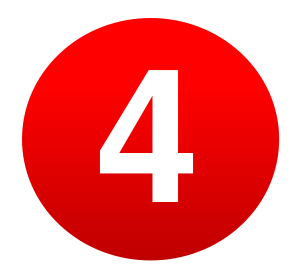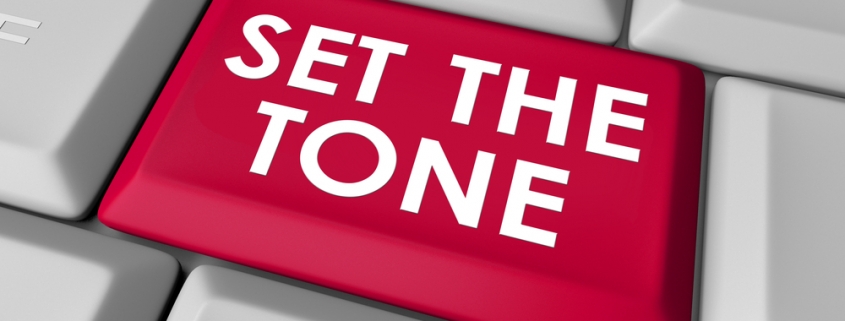4 Ridiculously Simple Tips to Improve Your Email Communications
Whether you get too much or not enough of it, each email that we receive and subsequently send, has a lot going on it in. More than just words, our email contains emotion: surprise, joy, happiness, hidden angst and sometimes even anger.
Sometimes our email contains emotion that we don’t even intend. You know the saying “beauty is in the eye of the beholder,” right? Well, with email, emotion, tone and interpretation falls squarely to the perception of the receiver. You may intend one thing, but quite another is perceived. And that is exactly why I wanted to share 4 ridiculously simple tips to improve your email communications.
Just yesterday I received and email from someone I don’t know from Eve. Since I don’t know this person I can’t imagine that her intentions were to evoke the emotion that she did. I interpreted the email as curt and rude. I decided to pause and reflect before responding. I also asked another person, whom I knew was her acquaintance, about how he would describe her email style. I am really glad that I did pause and reflect. Doing so lead me to ask the person the question I did. As it turns out, she is nothing like what her email made her appear. She is actually very lovely and sweet. When we spoken in person, I liked her immediately. After a good chat, the topic of her email style came up and she actually acknowledged that email is not her forte and asked if I had any tips. I gave her the following tips: (I also asked if she would mind if I did this blog post, without mentioning her name of course. She smiled and said go for it!)
1. Say “Hi”, “Hello”…..
This might seem obvious for many, and unnecessary to others. However, starting an email without saying something like “Hi Heather,” and just jumping into the actual message, could potentially come across as curt. I am guilty of this myself. I admit it. I tend to do it however with people whom I know really, really, really well. I also tend to do this when we are having a back and forth. I don’t do this when emailing a person I don’t know and it is our time corresponding.
In business however, I think that it is imperative to always start your email with a formal hello. This immediately sets the tone of your communication and you are showing a level of respect and etiquette. And yes, etiquette still matters in business communications.
Finally, while a personalized email does not mean that it is not a part of a mass email (or spam), you do increase the chances of someone actually reading your email when it is personalized.
2. Understand Protocols for Addressing People
If you really want to impress someone, address the email properly at the get go. For example, if you are trying to sell me something, you will likely fail if you start out with “Dear Sir.” I should add that I have received email with such salutations from very reputable companies.
Even though we have moved to more informal communications as a result of social media, there are still situations when you should formally address an email. For example, if you are communicating with a member of the C-suite, a academic or medical doctor, clergy, etc. you should carefully consider how you address the email. You might not want to go as far as Dear Sir or Dear Madam, but you might like to think about using Dr. or Reverend, etc. in the appropriate cases.
Remember this is not about being stuffy or rigid, but rather about setting the tone and building relationships. As noted above, I have not been impressed when I receive email inaccurately addressed to me. If the goal is to sell me a service or a product and the sender cannot take the time to properly address the email, then what kind of customer service will there be after the fact? The tone has been set by that very first email.
3. Words Matter
In many ways email has become far too relaxed. We type them up and send them off with little thought or consideration. That is often where we get into trouble. If you have a really good relationship with someone you can often get away with a quick email. However, with people you don’t know, subordinates and peers, and managers, it is important to take your time with your email and consider your words and the potential tone that they create. Remember to pause and reflect.
4. Remember to Thank People or Sign Off
Again it comes down to to how people feel after reading your email. Saying “thanks” or “thank you” at the end of the email is not over the top. Of course there are other options too. Just make it human and respectful. After all, there is another human being on the other end of that computer, smartphone, tablet, etc.
Email doesn’t need to be boring or complicated, but you should think about your email as it is an important communication tool that is not going away. In fact, a recent survey by Forrester finds that 73% of Marketers indicated that email continues to be effective to generate leads. So, creating thoughtful and creative email is another step closer to reaching your goals, whether they be sales, communications and/or employee or customer engagement.
For more tips, check out our website and blog and follow me on Twitter.




Leave a Reply
Want to join the discussion?Feel free to contribute!